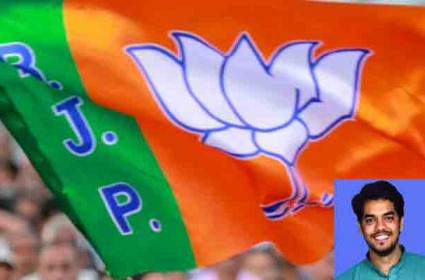Decoding BJP’s Pitch For A ‘Dynasty-mukt Bharat’

The Bharatiya Janata Party (BJP) has sounded, with full clamour, the poll bugle for the 2024 Lok Sabha elections. While the opposition is still palpably confused over its ‘leader’ and ‘agenda’, the BJP has skillfully devised its grand strategy to ensure the continuance of its reign beyond 2024. Such strategy has been succinctly described as ‘dynasty-mukt Bharat’ by senior office-bearers of the party and the government, including Party President J P Nadda and Prime Minister (PM) Narendra Modi. A party that came to power in 2014 on the plot of development,extinguishing ‘policy paralysis’, corruption-free India and regained power in 2019 by riding the waves of assertive Cultural Nationalism helped by a dysfunctional opposition, has a fresh gameplan for the Lok Sabha elections due in less than two years.
In order to get a complete grasp of the intentions behind this strategy, one needs to look at what has happened in the last eight years in the arena of regional politics. Most of the electoral defeats that the BJP has had to endure have been blows given by regional parties. Some of the prominent illustrations of this fact are listed here- All India Trinamool Congress (TMC) in 2016 and 2021, the Mahagathbandhan (Grand alliance) in 2015 of which the primary constituents were the Rashtriya Janata Dal (RJD) and JanataDal (United) or JD(U), the Jharkhand Mukti Morcha (JMM) led alliance in 2019, the Biju Janata Dal (BJD) in 2019, the Telangana Rashtra Samithi (TRS) in 2018, YSR Congress Party (YSRCP) in 2019, the DravidaMunnetraKazhagam (DMK) led alliance in 2021. This is not an exhaustive list by any means. The overarching conclusion, however, that can be drawn from these electoral records is that in much of India today the main opponent that the BJP has to contend with are the various regional parties inhabiting different political-electoral landscapes of this country.
It is this background that has propelled the pitch for a ‘dynasty-mukt Bharat’. One factor that can be used to club almost all the regional parties is that these are ‘dynastic parties’ led by a single family or, at times, a single leader and often charged with the accusation that the entire party structure works to consolidate and augment the family’s or the leader’s stature and power. From RJD in Bihar to TMC in West Bengal, and from DMK in Tamil Nadu to JMM in Jharkhand along with parties like National Conference (NC), Jammu and Kashmir Peoples Democratic Party (J&K PDP), Janata Dal (Secular), Samajwadi Party (SP)plus many more, are all parties that would fit the description of being ‘dynastic parties’ engaging in ‘politics for dynasty’. PM Modi has frequently targeted “dynasty politics” in his speeches. While addressing party workers on the BJP’s 42nd Foundation Day, he said that while the BJP was devoted to the nation, there were parties which were “devoted to families”. “There are still two kinds of politics going on in this country,” he said. “One is the politics of family devotion and the other is committed to patriotism. These people may be in different states, but they remain connected by the strings of dynasty politics, covering each other’s corruption. At the national level and in some states, there are some political parties that work only for the interests of their families. In dynasty governments, the members of the family have control over the local body to Parliament… Such family parties have never allowed the youth of this country to progress.”For many years now, the BJP has been vociferously arguing against ‘dynastic politics’, portraying it as the main source of all the failures and evilsinherent in the opposition parties such as their undemocratic nature, multi-level multifacetedcorruption, misgovernance, entitlement-elitist politics etc. Dynastic politics has become an all-encompassing category containing all ills of the opposition and ‘dynasty-mukt Bharat’is a single comprehensive remedy for these ills, in the BJP’s scheme of things.
Once one combines the electoral results of the last few years and the fact that most regional political outfits are dynasty-driven, the strategy of ‘dynasty-mukt Bharat’ makes perfect sense. After achieving its stated objective of ‘Congress-mukt Bharat’ (the Congress is in no position to challenge the BJP at the National level), the desire of a ‘dynasty-mukt Bharat’ is an appendage strategy to fulfil BJP’s ambition of Pan-India domination. The Congress, of course, can be comfortably placed in the pool of ‘dynastic parties’ and thus,the de facto meaning of the strategy ‘dynasty-mukt Bharat’ is an ‘opposition-mukt Bharat’,which should be seen as asign of total danger for a democratic India.
That the BJP is hellbent on subverting, if not annihilating, regional parties can be witnessed in two recent cases both of which involve erstwhile allies of the BJP. In Maharashtra, the Shiv Sena-led coalition government has been toppled with ‘rebel’ Eknath Shinde placed on the throne of Chief Minister by the BJP. Similar to Maharashtra, the BJP was trying to weaken its own coalition partner JD(U) in Bihar but could not succeed owing to political acumen and foresight of Nitish Kumar. The message is clear-BJP is not ready to give any space to any other political outfit regardless of ideological conformity or contestation. This can be further corroborated by Home Minister Amit Shah’s ‘next 30-40 years will be the era of BJP’ statement and Party President J P Nadda’s ‘no regional parties will exist in the future’ statement. The recent resurgence of the Mahagathbandhan in Bihar can be viewed as the beginning of resistance by regional parties against the BJP’s hostility towards them. How other regional parties respond to ‘dynasty-mukt Bharat’ will be interesting to see in the run-up to the next Lok Sabha elections.
(Survesh Pratap Singh has completed his postgraduation in Political Science from Jawaharlal Nehru University (JNU), New Delhi. He is associated with Peoples Pulse, a Hyderabad based Research organization on Electoral Politics)



















